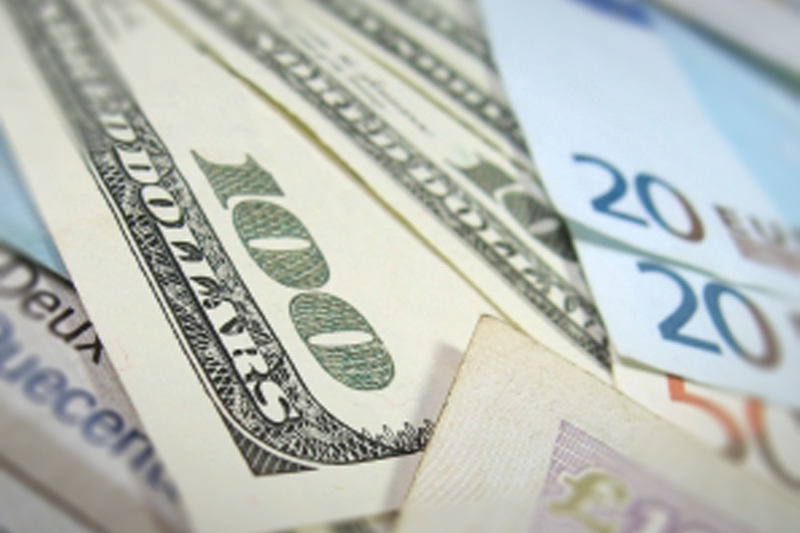Investing.com -- The euro surged against the dollar on Tuesday posting its largest one-day rally in nearly three months, as ambiguities related to the Greek debt crisis and poor U.S. economic data remained in focus.
EUR/USD soared more than 2.15% to an intraday high of 1.1192 before falling slightly back to 1.1153 in U.S. afternoon trading. Still, the pair finished with its sharpest daily gain since Mar. 18 and closed above 1.10 for the first time in eight sessions.
EUR/USD likely gained support at 1.1001 the low from May 22 and was met with resistance at 1.1328, the high from May 19.
In Berlin, high-level talks between top monetary policymakers and leaders of Germany and France on Monday evening dragged past Midnight, as the officials worked to craft a strategy on how to approach what could be the final round of talks with Greece. European Central Bank president Mario Draghi, International Monetary Fund head Christine Lagarde, Germany chancellor Angela Merkel, France president Francois Hollande and European Commission president Jean-Claude Juncker were among the officials present at the meeting.
The meetings transpired days before a Greek deadline to meet a €304 million obligation to the IMF on Friday. In total, Greece owes more than €1.1 billion to the IMF in four separate payments by the end of this month.
The leaders "agreed that work must now be continued with greater intensity,” according to a statement issued by Merkel's office. The officials "have been in closest contact in recent days," the statement continued, "and want to remain so in the coming days, both among themselves and naturally also with the Greek government."
Yields on Greek 10-Year bonds plunged nine basis points to 10.96%, underscoring optimism that a deal can be reached. By comparison, yields on the Greek 10-year bonds have soared more than 510 basis points this year.
Last week, Greece prime minister Alexis Tsipras said the two sides were close to completing a technical draft of an agreement that could unlock critical aid thought to be needed for Greece to stave off bankruptcy. Euro zone officials downplayed the developments.
Elsewhere, euro zone inflation ticked up 0.3% in May increasing from zero a month earlier and above expectations for a 0.2% increase. The rise may provide validation for Draghi that the ECB's comprehensive €60 billion a month quantitative easing program is working. Yields on other sovereign debt throughout Europe shot up, as a result. Yields on Germany 10-Year bunds increased 17 basis points to 0.71%, while yields on the Spanish and the Italian 10-Year bonds each gained at least 12 basis points to move above 2%.
The sell-off spilled over to U.S. bond markets, as yields on U.S. 10-Year Treasuries rose nearly eight basis points to 2.26%, its highest level since May 13.
The U.S. Dollar Index, which measures the strength of the greenback versus a basket of six other major currencies, plunged more than 1.6% to an intraday low of 95.72, as investors unwound from their long positions in the dollar. Weak demand in April caused new orders for factory goods to dip 0.4% for the month following a 2.2% gain in March.
Also on Tuesday, the dollar moved above 125 against the yen for the first time since November, 2002, before falling back to 124.09, down 0.55%.
